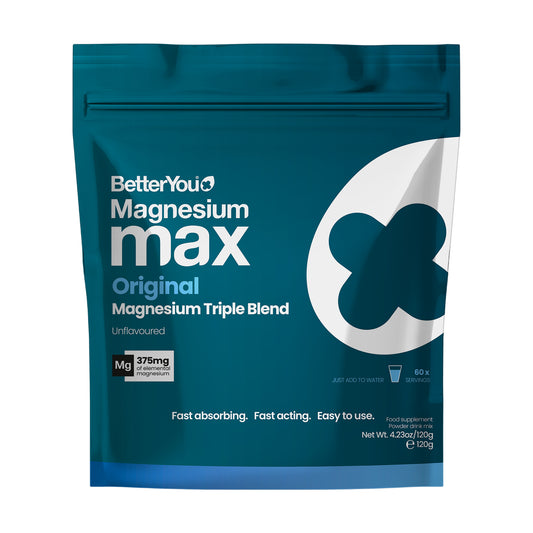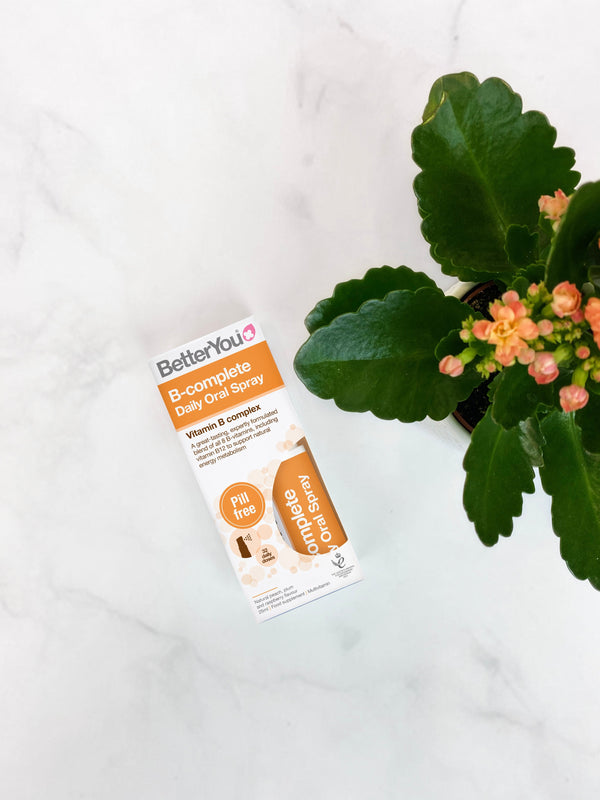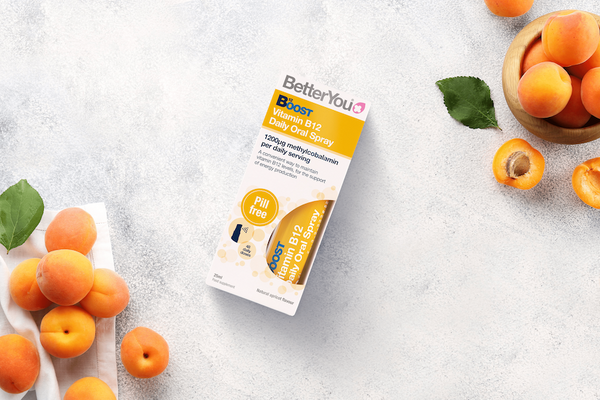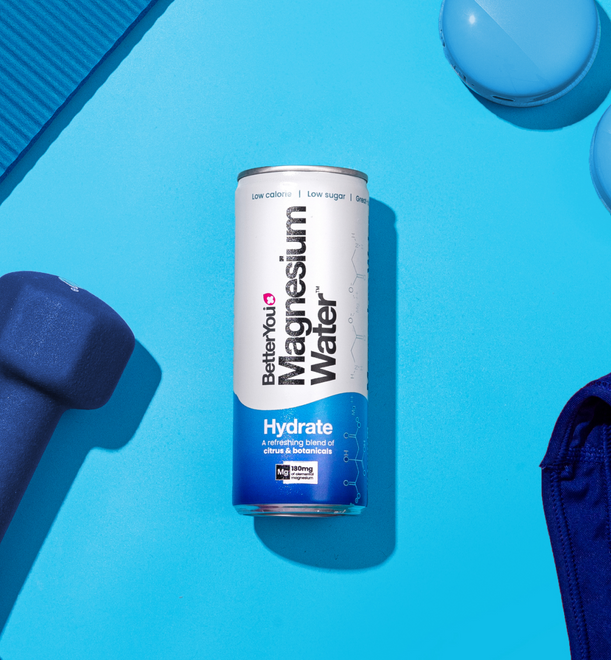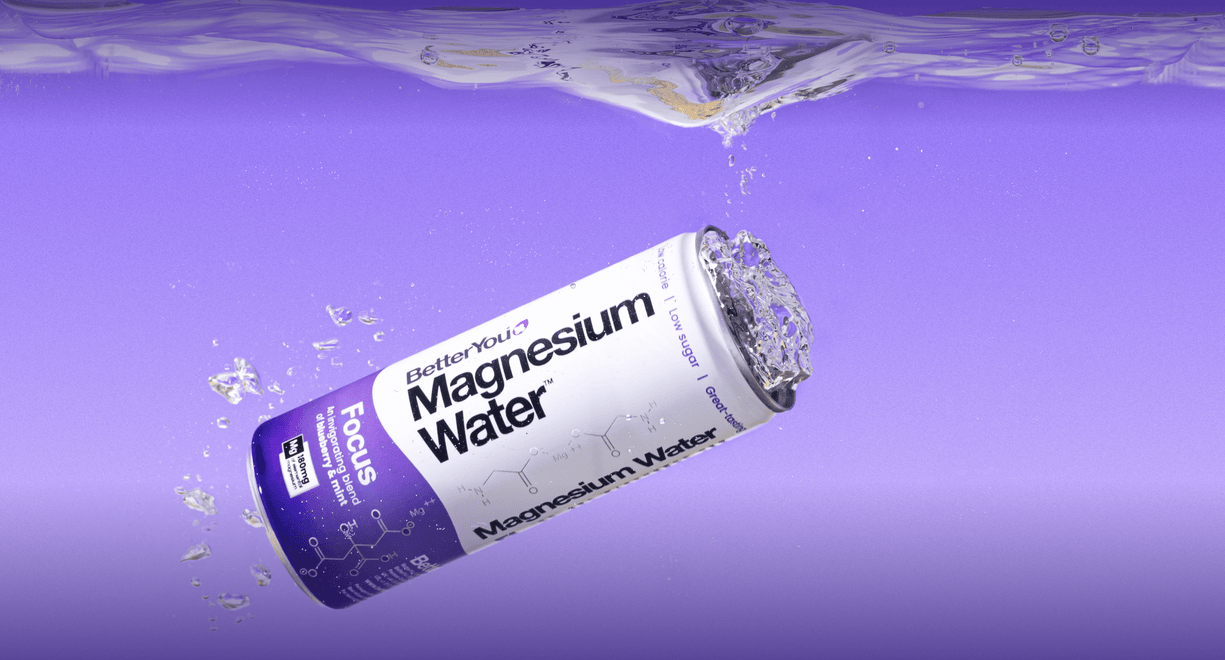Identifying selenium deficiency is essential to ensure your body is working the way it should. The mineral is central to many important processes in your body, including supporting healthy hair and nails, as well as immunity. We’ve put together the ultimate guide to selenium deficiency. See the symptoms, causes, and how to aid optimal mineral intake.
Table of Contents:
- What is Selenium Deficiency?
- 6 Symptoms of Selenium Deficiency
- How Much Selenium Per Day?
- Are You at Risk of Selenium Deficiency?
- 8 Benefits of Selenium
- Increase Selenium Levels with BetterYou
- 10 Sources of Selenium
What is Selenium Deficiency?
Selenium deficiency is when you are not getting enough of the mineral selenium for your immune system and thyroid to function as it should. Selenium is a non-metal element in the periodic table, with a chemical formula Se. Your body needs selenium for a range of everyday uses - from protecting cells from oxidative stress to maintaining normal hair and nails. If you aren’t getting enough, through selenium supplements or your diet, you may be at risk.
Selenium deficiency affects 500 million to 1 billion people worldwide, and is caused by low nutrient levels. BetterYou can help you avoid these low levels with supplements in a spray alternative to tablets.
6 Symptoms of Selenium Deficiency
Spotting the signs of selenium deficiency is important to encouraging a healthy lifestyle. The mineral plays an important role in the body, without the right levels, your immune system, fertility, and metabolism may suffer. These unwanted side effects can be detrimental to your health, so regulating your mineral intake, and knowing what to look out for is essential to your health. Some symptoms of selenium deficiency include:
- Fatigue - Due to selenium’s role in turning food into energy and aiding your metabolism, selenium deficiency can cause you to feel tired and fatigued. This is also a sign of iron deficiency, and you may be recommended energy supplements.
- Weakened immune system - Selenium contributes to the normal function of the immune system, making you less susceptible to disease and infection. With selenium deficiency, immunity is not supported, so you are more likely to get ill due to a weakened immune system. Therefore, you may require immune system supplements to give you that added boost.
- Infertility in men and women - This is due to the mineral’s role in spermatogenesis. This process is the maturation of sperm cells within the reproductive organs. This mineral protects sperm from damage or mutations while they are vulnerable in their development. The mineral is also present within the tail of sperm cells. Naturally, selenium deficiency can lead to lower levels of fertility. Whilst studies are ongoing into the effect of selenium deficiency in female reproduction, it is considered to reduce fertility. Taking conception supplements can help to provide your body with the essential nutrients needed to get pregnant.
- Muscle weakness - An important function of the mineral is in thyroid hormone synthesis and metabolism (the process of turning food into energy). Without being able to gain energy from the food you eat, your muscles will not be supplied with enough energy to feel strong and keep you going. That’s why selenium deficiency can cause muscle weakness. There are benefits of magnesium for muscles which can help you recover after exercise and relieve tension. Weak muscles are also a sign of vitamin D deficiency.
- Hair loss - This vital mineral is responsible for activating an enzyme which is essential for the making of antioxidants in the body. These promote healthy hair growth, and those with selenium deficiency may experience hair loss. This can also be a symptom of vitamin C deficiency.
- Mental fog - Selenium is needed to make selenoproteins, which directly support cognitive function. With selenium deficiency, there is not enough selenium available to make these selenoproteins, leading to mental fog and a struggle to concentrate.
Identifying the signs of selenium deficiency could help avoid the unwanted side effects which come with it. If you think you have any of the signs and symptoms of selenium deficiency, you should see your GP or medical professional. They may arrange for a test to determine if you are deficient and may need supplements.
How Much Selenium Per Day?
Ensuring your dietary intake of selenium is enough is important to avoid low levels and a resulting deficiency.
The recommended daily intake of selenium is 70 μg/day for adults that are ages 18+. The safe upper limit is 300 μg/day. Do not exceed the upper limit of any vitamins or minerals unless advised by your doctor.
Are You at Risk of Selenium Deficiency?
Although selenium deficiency can affect anyone whose nutrients get too low, there are some people who may be more at risk. It’s important to understand if you may be more likely to experience the unwanted health concerns which come with low nutrient levels. Those more at risk include:
- Those with gastro-intestinal issues - Disorders such as Crohn’s, IBS, and others which affect the gastro-intestinal tract may be more at risk of selenium deficiency. This is because the body may struggle to absorb the mineral, even if they are eating enough selenium-rich foods. BetterYou pioneered oral sprays which do not pass primary processing through the digestive system, and therefore can help people with issues such as these obtain proper nutrient levels.
- Those with eating restrictions - Those following a restricted diet due to allergy, or lifestyle choice, may not be able to eat the foods containing enough selenium. Therefore, they are more likely to suffer from selenium deficiency. BetterYou’s food supplements are designed to provide the essential nutrients you may be missing.
- Those who eat food grown in soil with low selenium content - Food grown in soil that is rich in vitamins and minerals is more nutritious, because the crop intakes them from the soil. Those eating food from soil that is low in selenium, are more at risk of selenium deficiency.
- Those with phenylketonuria (PKU) - This is because of the restricted diet of people suffering from the disorder, their ability to obtain enough selenium from their food is reduced.
- The elderly - Due to physical, metabolic changes and the way age affects nutritional intake, those of more advanced years are more likely to suffer selenium deficiency.
If you are more at risk, or think you have the symptoms of selenium deficiency, seek medical attention. Always seek medical advice if you are worried about your nutritional levels and before taking multivitamins or supplements.
You can test if you have a nutrient deficiency with convenient and easy to use Health Test Kits. With BetterYou, you can easily identify the vitamins and minerals you may be lacking. Using UK accredited labs, your results will be both accurate and confidential. Once you’ve completed the Vitamin D Test Kit, Iron Test Kit, or Vitamin B12 Test Kit, you will receive a tailored supplementation plan to support optimal nutritional levels.
8 Benefits of Selenium
Avoiding selenium deficiency is vital to maintain normal health and reduce the risk of suffering symptoms. There are many benefits of selenium which your body requires to function properly. These benefits include:
- Reduces risk of selenium deficiency
- Supports the immune system, as do children’s immunity supplements
- Maintains normal hair and nails, as do hair, skin, and nail vitamins
- Helps turn food into energy
- Aids in protecting cells from oxidative stress
- Contributes to normal fertility
- Supporting selenium levels in the elderly
- Aids normal thyroid function
Encouraging your intake is essential if you want to support your body in these ways. With BetterYou, that’s easier than ever thanks to our pioneering oral spray technology.
Increase Selenium Levels with BetterYou
Ensuring you intake the recommended dosage of vitamins and minerals is imperative to avoid suffering from a deficiency. With BetterYou, you can increase your selenium levels with our simple pill-free alternatives to traditional supplementation. We developed our selenium supplements to reduce the risk of low selenium in a natural and easy way.
Our Selenium + ACE oral spray is scientifically formulated to deliver nutrients to the bloodstream directly from the mouth and mucous membranes. When sprayed into the mouth, the tiny droplets provide an effective alternative to traditional tablets.
10 Sources of Selenium
Sources of this essential nutrient can help you to avoid selenium deficiency. If you know which foods contain crucial nutrients, you can be sure to include them in your diet alongside supplements. That way, your levels can be at their optimum, thus avoiding low levels. Some sources include:
- Selenium supplements
- Brazil nuts
- Seafood and fish
- Organ meats
- Muscle meats
- Cereals and other grains
- Dairy products
- Bread
- Poultry
- Eggs
If you don’t have optimal levels, you are at risk of developing selenium deficiency. Some may not be able to source nutrients from certain foods due to allergies or dietary restrictions. At BetterYou, we formulated vegan supplements, vegetarian supplements, and gluten-free supplements, so everyone can find the vitamins they need. That way, you can know you’re intaking your vital nutrients and avoiding selenium deficiency.
Pill-free supplements from BetterYou
Our range of vitamin oral sprays and topical magnesium supplements provide a fast, effective alternative to traditional tables and capsules. Scientifically formulated to deliver maximum nutrient absorption, with minimum fuss, to help you feel and live better.
Take control of your health today with our magnesium supplements to aid natural sleep, vitamin D supplements to boost your immunity and our at-home health checks to get a clear picture of your nutrient levels.

